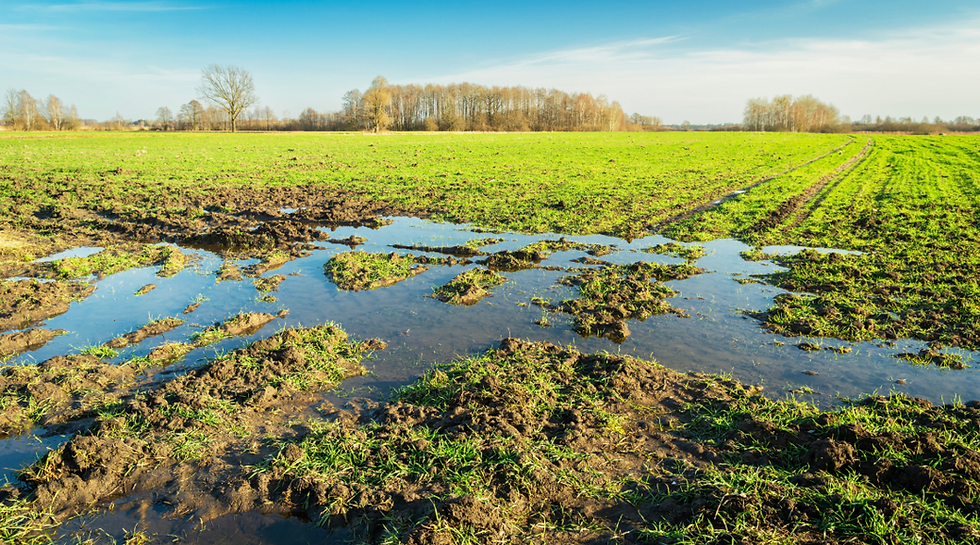Can you afford to waste fertiliser, whatever it costs?
- Dave Edwards
- May 13, 2025
- 3 min read

Chemical Fertilisers have been used on the land for approximately 80 years. Prior to this, our forefathers used what was available to them, green manures, farmyard manures, a four-crop rotation and seaweed harvested off the beaches, to feed both crops and stock.
Chemical fertilisers increased yield, but at a cost. The depletion of the natural biodiversity has resulted in a year-on-year increase in the quantity of chemical fertilisers required to deliver a comparable yield. The natural biome has evolved over millions of years creating a mutually beneficial relationship between plant and bacteria. This relationship has been damaged by the inhospitable environment within the soil, created by chemical usage.

EASy BioN, only available from Edwards Agricultural Supplies, contains 8 different natural soil borne bacterial species that assist the plant in the acquisition of nutrients that would not necessarily be available to the plant on its own.
All plants require nitrogen, the atmosphere contains 78% nitrogen but unfortunately most plants cannot absorb the nitrogen directly out of the atmosphere, they need a little help. Specific Bacteria have evolved to absorb nitrogen from the atmosphere and transport it through the plant for storage in nodules within the root zone for the later use. It will not leach out. When chemical nitrogen is used on crops, between 30-80% is lost through leaching into the atmosphere and water course. Can you afford to waste this money?
Plants also require phosphate. Irrespective of the source, any phosphate applied to the plant or ground will be converted into a non-plant available form within 6-8 weeks if not used. This has resulted in the majority of UK agricultural land containing sufficient phosphate, but in a form that is not available to the plant. Accessing that ‘locked-up’ phosphate you could save you money. Natural phosphate solubilising bacteria can convert the non-plant available phosphate into a plant available form.
The third element of the ‘primary building blocks’ for plants is potassium. Up to 98% of the potassium soil reserves are in non-plant available form. Potassium solubilising bacteria enable the plant to access the potassium, enhancing the activity of nitrogen and phosphate solubilising bacteria by working together.
Bacteria also assist with the plant’s uptake of insoluble iron and zinc.
Good bacteria produce plant hormones together with anti-microbial and antifungal products that induce systemic resistance within the plant and help with the plants natural defence mechanisms.

I can hear you all shouting, “if they are naturally present why aren’t they working for me now”? Unfortunately, it is not a one-way process, the bacteria need a little something from us. They need food. The continued overuse of chemicals and modern cultivation practices has starved the bacteria, reducing quantity and diversity until there are not enough to ‘do a good job’.
Edwards Advanced Seaweed feeds the plant and bacteria. It does not leach. Containing British concentrated seaweed extract and humic substances, Edwards Advanced Seaweed provides a food source and a home for the bacteria whilst providing nutrients and extracted ‘plant hormones’ for the plant. Humic substances are themselves decomposed plant and microbial material decomposed over thousands of years. They are an ideal home for the bacteria holding onto moisture and nutrients for both plant and bacteria.
Edwards Advanced Seaweed and BioN work in synergy with the plant, improving the plants nutrient-use efficiency and is easy to apply with a sprayer in one pass. Both products are produced and packaged in the UK, so you reduce your carbon footprint as well.
To find out how natural soil bacteria can help your profit margin phone Edwards Agricultural Supplies on 01584 711635.





